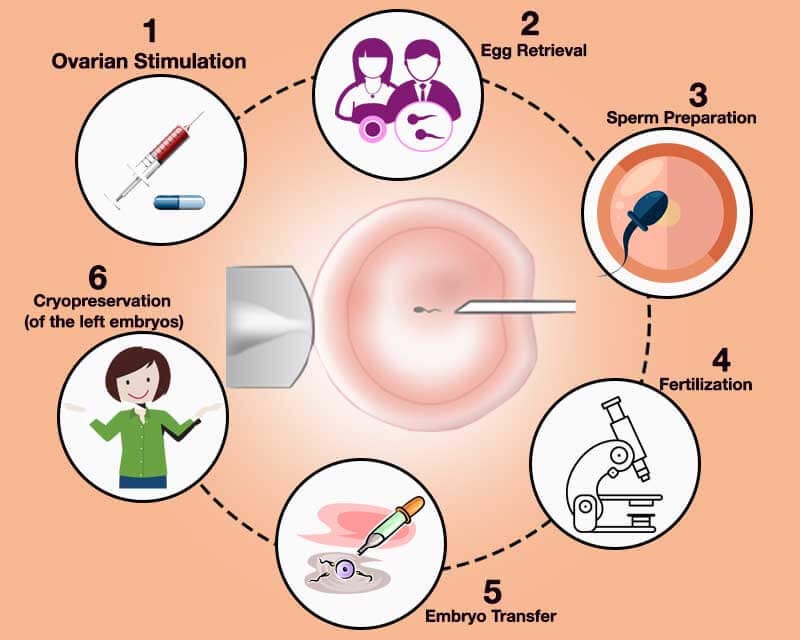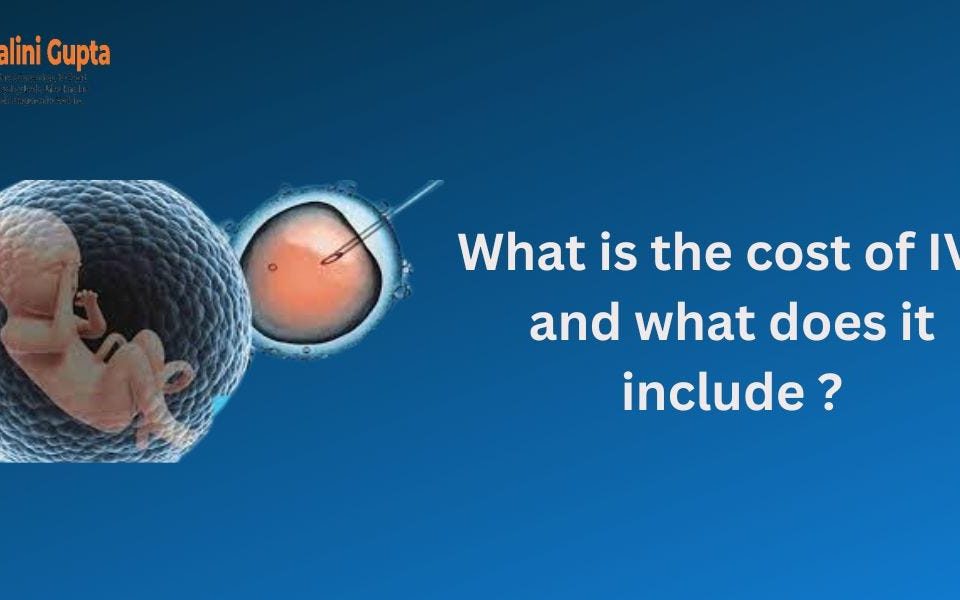
Will I Miscarry If I Stop Taking Progesterone After IVF?
April 26, 2025
Why Is IVF Morally Wrong?
April 26, 2025Why Do Republicans Oppose IVF? A Deep Dive into the Debate
In vitro fertilization (IVF) has helped millions of families grow, offering hope to those struggling with infertility. Yet, it’s become a hot-button issue in American politics, especially among Republicans. You might’ve heard the headlines: Senate Republicans blocking IVF protection bills, or party leaders wrestling with their stance after court rulings. It’s confusing, right? One minute, they’re saying they support families; the next, they’re voting against something that seems so pro-family. So, what’s really going on? Why do some Republicans oppose IVF—or at least seem to?
This isn’t just about politics; it’s about real people—couples dreaming of kids, doctors trying to help, and a nation divided on big questions about life, science, and freedom. Let’s unpack this step by step, digging into the beliefs, the laws, and the human stories behind the debate. By the end, you’ll have a clearer picture of where this opposition comes from, what it means for the future, and how it affects everyday folks like you or your neighbors.
The Roots of Republican Opposition: Where It All Starts
At first glance, opposing IVF might seem odd for a party that often calls itself “pro-family.” After all, IVF helps people have babies—how could that clash with family values? The answer lies in a core belief held by many Republicans, especially those tied to conservative Christian groups: life begins at conception. This isn’t just a slogan; it’s a worldview that shapes how they see embryos, even ones created in a lab.
For these folks, an embryo isn’t just a cluster of cells—it’s a potential human with rights. IVF, though, often involves creating multiple embryos, and not all of them get used. Some are frozen, some are discarded, and that’s where the tension kicks in. To someone who believes embryos are people, discarding them feels wrong, maybe even like ending a life. It’s a moral line in the sand.
Take the Alabama Supreme Court ruling from February 2024, for example. They decided frozen embryos are legally “children” under state law. Suddenly, IVF clinics paused treatments, worried about lawsuits if an embryo got damaged. Republicans had to respond, and their reactions showed a split. Some, like Senator Katie Britt, rushed to say they support IVF. Others stayed quiet or doubled down on “life at conception” ideas. It’s a messy spot to be in—trying to back families while sticking to principles.
The Religious Angle: Faith Meets Science
Religion plays a huge role here, especially for evangelical Christians who make up a big chunk of the Republican base. Groups like the Southern Baptist Convention, with nearly 13 million members, have started speaking out. In June 2024, they voted to oppose IVF, arguing it “dehumanizes” embryos by letting doctors pick and choose which ones to implant. To them, it’s not just about helping couples—it’s about playing God with life.
This isn’t new. For decades, anti-abortion activists (many of whom overlap with this crowd) have pushed the idea that life starts when sperm meets egg. IVF complicates that because it happens outside the body, and the process isn’t perfect. Extra embryos get made to boost the odds of success, but what happens to the ones left over? That question gnaws at people who see those embryos as tiny souls.
Not every Republican feels this way, though. Some, like Senator Roger Marshall (an obstetrician himself), call IVF a “great thing” and say it’s a gift from God. But even he’s co-sponsored bills like the Life at Conception Act, which could limit IVF if it became law. It’s a tightrope walk—supporting the tech while wrestling with the ethics.
What Do You Think?
Here’s a quick poll to get you thinking:
- Do you see embryos as potential humans with rights?
A) Yes, from the moment of conception
B) No, they’re just cells until later
C) Somewhere in between
Drop your answer in your head—or chat about it with a friend. It’s a big part of this debate!
The Political Tug-of-War: Laws and Votes
Now, let’s talk politics. Republicans have blocked several IVF protection bills in the Senate—like the Right to IVF Act in June and September 2024. Democrats pushed these to lock in nationwide access, but most GOP senators said no. Why? They called it “overreach” or a “political stunt.” Senator Mitt Romney, for instance, said the bill had “poison pills” they couldn’t stomach, though he didn’t spell out what those were.
Here’s the catch: many of these same senators say they support IVF. Donald Trump, the GOP’s 2024 presidential nominee, even promised to make it free if he wins, either through insurance or government funding. So why block the bills? Part of it’s strategy—Republicans don’t want Democrats scoring points on an issue they’re shaky on. Part of it’s principle—they’d rather leave it to states than have a big federal law.
But there’s a deeper snag. Over 125 House Republicans have backed the Life at Conception Act, which says life starts at fertilization—no exceptions for IVF embryos. If that passed, it could ban discarding embryos, making IVF as we know it nearly impossible. Critics say it’s hypocritical to cheer for IVF while pushing laws that could kill it. Supporters say they’re just being consistent about life.
A Real-Life Example
Imagine a couple in Texas, Sarah and Mike. They’ve been trying for a baby for years. IVF’s their last shot. They create five embryos, implant one, and it works—yay, a pregnancy! But the other four? They can’t afford to freeze them forever, and donating them feels weird. In a state with strict embryo laws, they might face legal trouble for tossing them. That’s the kind of bind these policies could create.

The Anti-Abortion Connection: IVF in the Crosshairs
IVF’s opposition ties back to the anti-abortion movement, which has been a Republican powerhouse for 50 years. After Roe v. Wade fell in 2022, groups like the Heritage Foundation didn’t stop—they turned to IVF. Their long game? Push “personhood” laws that give embryos full rights. If that happens, IVF could get regulated to death—limits on how many embryos you can make, bans on genetic testing, you name it.
This isn’t about banning IVF outright (yet). It’s about control. Tony Perkins from the Family Research Council, for example, wants rules like “only three embryos at a time” instead of a dozen. Fertility experts say that’d tank success rates and jack up costs. The American Society for Reproductive Medicine backs this up—studies show three embryos give a 95% chance of pregnancy, versus 65% with one. Fewer embryos, fewer babies. Simple math.
The Numbers Don’t Lie
Here’s a quick look at IVF by the numbers (2023 data from the CDC):
- Over 91,000 babies born via IVF in the U.S.
- Average embryos created per cycle: 6-10
- Success rate per cycle: ~30-40% for women under 35
If you cap embryos at three, that success rate could drop fast, leaving more couples empty-handed.
The Public vs. The Party: A Growing Gap
Here’s where it gets wild: most Americans love IVF. Polls—like one from Kellyanne Conway’s firm in 2024—show over 80% support it, even among conservatives. One in six people dealing with infertility use it, says the National Infertility Association. So why’s the GOP out of step? It’s the base. Evangelical voters and anti-abortion groups have outsized sway, and they’re louder than the average Joe.
This gap’s causing headaches. After Alabama’s ruling, Trump and Senate candidates got memos from the National Republican Senatorial Committee: “Say you support IVF, loud and clear.” They’re trying to dodge the backlash. But actions speak louder—blocking bills doesn’t scream “pro-IVF” to most folks.
Voices from the Ground
On X, people are buzzing. One user posted in 2024: “My wife and I used IVF to have our twins. Republicans say they’re pro-family, but this feels personal.” Another said, “If embryos are kids, what about the million in freezers? Who’s paying for that?” These are real questions the party hasn’t fully answered.
Three Big Issues No One’s Talking About Enough
The top articles on Google cover the basics—religion, politics, abortion ties. But there’s more to this story. Here are three angles that deserve more spotlight:
1. The Cost Crunch: Who Pays for Frozen Embryos?
Over a million embryos sit in storage nationwide, per estimates from fertility groups. If they’re legally “children,” who’s responsible? Parents can’t always foot the bill—storage runs $500-$1,000 a year. Clinics can’t just toss them if laws tighten. Could taxpayers end up funding “embryo warehouses”? No one’s crunched those numbers yet, but it’s a looming mess.
What You Can Do: If you’re considering IVF, ask your clinic about long-term storage costs and state laws. Plan ahead—it could save you a headache.
2. The Science Standoff: Genetic Testing on Trial
IVF often uses preimplantation genetic testing (PGT) to screen for diseases like cystic fibrosis. Anti-abortion folks call it “eugenics” and want it banned. But PGT cuts miscarriage rates by 50%, says a 2022 study in Fertility and Sterility. Without it, IVF gets riskier and pricier. Republicans haven’t grappled with this trade-off publicly—science vs. ideology.
Quick Tip: Talk to your doctor about PGT if you’re exploring IVF. It’s not just about “designer babies”—it’s about healthier pregnancies.
3. The State Patchwork: A Future of IVF Haves and Have-Nots
If federal protections fail, IVF access could split along state lines—blue states keeping it open, red states clamping down. Louisiana already bans discarding viable embryos. Could Texas or Florida follow? Couples might have to cross borders for treatment, like with abortion now. No one’s mapping this out yet, but it’s coming.
Action Step: Check your state’s stance on embryo laws. It might affect where you start your family.
What’s at Stake for Families?
This isn’t abstract—it’s personal. Take Tammy Duckworth, the Illinois senator who used IVF to have her daughters. She’s fighting for federal protections, saying, “How dare you” to Republicans who block them. Or think of the Alabama couples who lost embryos in a clinic accident and sued—sparking the whole “embryos are children” ruling. These are real stakes: dreams delayed, savings drained, futures on hold.
IVF costs $12,000-$20,000 per cycle, per the American Society for Reproductive Medicine. Insurance rarely covers it fully. Add legal risks or fewer embryos, and it’s a mountain too high for many. Republicans say they’re pro-family, but their moves could shrink the path to parenthood.
A Checklist for Couples
If you’re thinking about IVF, here’s what to watch:
✔️ Research state laws—are embryos “people” where you live?
✔️ Ask about extras—how many embryos can you make, store, or discard?
✔️ Plan financially—can you handle storage fees long-term?
❌ Don’t assume it’s safe—laws could change mid-process.
❌ Don’t skip the fine print—clinics might pause if rules shift.
The Future: Where’s This Heading?
So, where does this leave us? Republicans aren’t united—some want IVF free and easy, others want it reined in. Trump’s promise to fund it could shift the game if he wins in 2024, but his party’s not on board yet. Meanwhile, Democrats are betting big on reproductive rights, tying IVF to abortion in their 2024 playbook.
Google Trends shows “IVF Republican opposition” spiking since Alabama’s ruling, with searches like “IVF laws by state” and “cost of IVF embryos” climbing. People want answers—practical ones. X posts echo that: frustration from parents, confusion from voters, and a call for clarity.
My take? This won’t resolve soon. The GOP’s stuck between its base and the public. If personhood laws spread, IVF could become a luxury for the rich or the mobile. But if families keep speaking up—like the 91,000 babies born via IVF in 2023—pressure might force a compromise.
Mini Quiz: Test Your IVF Smarts
- What’s the biggest reason some Republicans oppose IVF?
A) It’s too expensive
B) Embryos might get discarded
C) It’s not natural - How many embryos are typically made per IVF cycle?
A) 1-2
B) 6-10
C) 20+ - True or False: Most Americans support IVF.
(Answers: 1-B, 2-B, 3-True. How’d you do?)



